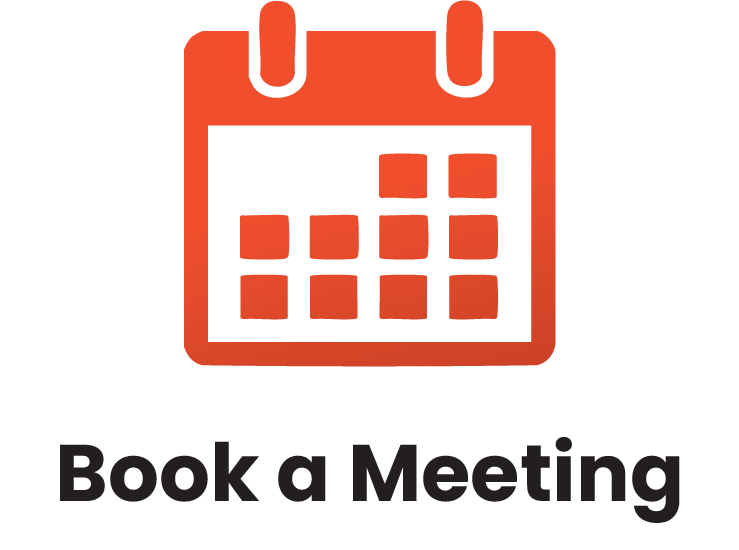Interactive training sessions led by experienced facilitators.
What is In-Person, Instructor-Led Training?
Our in-person training is delivered by a live facilitator who works directly with your team at your location. It’s our most popular format because it allows for real-time interaction, hands-on learning, and direct support.
Every session is tailored to your team’s specific goals, industry, and challenges—no generic, one-size-fits-all programs. Whether it’s a single session or a full training series, we design the experience to be relevant, practical, and fully aligned with your needs.
What is Live Webinar Training?
Live webinars are facilitator-led training sessions delivered online in real time. They’re ideal for teams working in different locations or with busy schedules.
This format offers shorter, more frequent sessions that are easy to coordinate—making it a convenient option for organizations with remote or distributed teams.
What is Virtual Classroom Training?
Virtual Classroom training is live, instructor-led training delivered online. It offers the same interactive experience as in-person sessions, with real-time discussions, group activities, and instructor feedback.
It’s a flexible option for organizations that want to reduce travel, save costs, or better fit training into busy schedules.
What is a Lunch & Learn Session?
Lunch & Learn sessions are short, facilitator-led training sessions delivered in person or online—typically during the lunch hour. They focus on specific topics or skills and offer a quick, engaging way to learn without a full-day commitment.
These sessions can be offered as one-time events or as part of a series, making them a great option for ongoing, bite-sized learning.
Online Learning
Enjoy our self-paced option and learn from anywhere!
$279.00 USD
Public Speaking: Speaking Under Pressure
This workshop has been designed for those in positions where they must speak in front of audiences that are hostile or demanding. This material is also suitable for those who are relatively new speakers who want some encouragement to speak up in meetings or who want some training before they begin making presentations on behalf of the organization.
Speaking under pressure, or thinking on your feet, means being able to quickly organize your thoughts and ideas, and then being able to convey them meaningfully to your audience to modify their attitudes or behaviour. It applies to formal speeches as well as everyday business situations.
It requires presence of mind, goal orientation, adaptation, and judgment. It also requires differentiating between oral and written communications.
This course is aimed at improving your skills and learning some new techniques which will give you the persuasive edge when you are making a presentation, fielding difficult questions, or presenting complex information.
LEARNING OBJECTIVES
Learning Objectives
Specific learning objectives include:
- Apply quick and easy preparation methods that will work whether you have one minute or one week to prepare.
- Prepare for questions, even before you know what those questions will be.
- Overcome nervousness that you may have when speaking in front of a group, particularly if the group is not sympathetic to what you have to say.
- Use presentation techniques that establish your credibility and get people on your side.


COURSE OUTLINE
Getting Started
To begin, we will explore what Speaking Under Pressure is. Participants will also learn an easy way to structure any presentation.
Planning
This session will offer participants seven easy ways to better prepare for a presentation – even if you don’t know the time, date, or topic.
Force Field Analysis
Next, participants will learn about a structured method of looking at two opposing forces acting on a situation.
Understanding Your Audience
During this session, we will explore a three-phase needs approach and the idea of common ground. Participants will also practice creating an audience profile.
Controlling Your Jitters
This session will focus on how to make the most of stage fright.
Making Your Listener Hear You
During this session, participants will explore what turns listeners on and off in a large group discussion.
Key Themes
To wrap up the first day, participants will learn what a key theme is, how to create one, and how to distill it into a key sentence. Participants will also be given a small homework assignment.
Key Sentences
To begin the second day, we’ll wrap up our discussion on key themes. Participants will share their homework assignment.
Structuring Ideas
This session will explore the idea of using three key points for a presentation. We will also share some tips for sending a memorable message.
Organization Methods
Next, participants will learn some different ways to organize the information in the body of their message.
Our Body Language
During this session, participants will take a close look at positive and negative body messages.
If You Could Be…
To prepare for the major presentation later on in the workshop, participants will be asked to give a short presentation on this question: “If you could wake up tomorrow having gained any one ability or quality, what would it be?”
Beginnings and Endings
This session will give participants some ways to create strong beginnings and endings.
Expanding a Basic Plan
So far, this workshop has focused on small presentations. This session will give participants some tips on fleshing out those small presentations should they be required to present something longer than just a few minutes.
Presentations
To conclude the workshop, participants will prepare and present a short five minute speech. Participants will also evaluate each other.


















